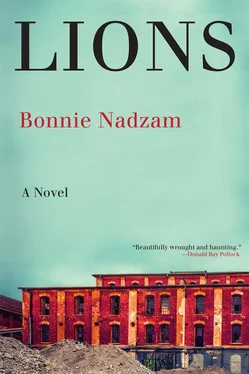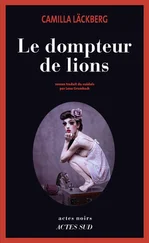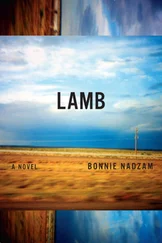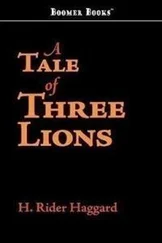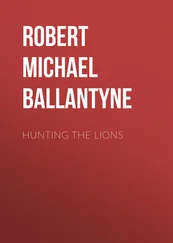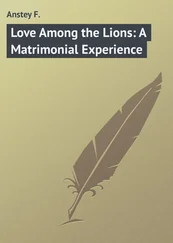Leigh knew the road. They’d been on it together. It was so seldom used that for miles at a time it narrowed into a single lane, disappeared in the weeds altogether, and appeared again like a faint line of chalk drawn through the BLM land littered with white primroses, prickly pear, and cow shit. Gordon would follow it all the way up. He’d drive until the roadsides were crusted with dirty ice, and woofs of snow blew off the tops of the mountains in the distance. It was an arid, rocky country, with naked gray bluffs of stone and small fists of sage and scrappy trees like upended bits of frayed twine. When the road passed between two uplifted planes of granite, he’d slow the truck, look back, then accelerate and speed through.
For hours, no matter how far he’d drive, the horizon would appear no closer, and look no different, unless for a moment it was marked by the dots of ragged horses out to pasture. A scarf of smoke rising in the vacant blue. An abandoned kitchen range, its siding chewed to a rustwork of lace. As he checked the road ahead, the rearview, then the side mirror, shifting his gaze in a triangle of points, he’d see a shadow racing around, just ahead of his vision, like an intuition that’s there, and gone. Daylight receding beyond the ridge to the west as he sped north, and from the east a band of darkness slowly closing over him like a lid.
“It’s not just you facing this thing,” John would’ve told him. “It’s you and everyone who came before you.”
Eventually in the years to come, after two trips north herself searching for him, or for Boggs, whomever she might find first, Leigh would come to understand it all.
How fast the landscape changes when you pass Horses up there, then Three Bells. How the wind sings and moans like an old song you can neither place nor stand to hear. How Gordon wouldn’t have been able to get the picture of his father in a hospital bed out of his mind. How all he’d have thought about was how good life had been, and how it was supposed to have gone.
He’d stay at the North Star that night, a motel planted in the middle of nowhere with an American flag, the whole place pinned to the dirt by a metal pole topped with a neon-green star that rocked in the wind. Inside the motel, the carpet a filthy off-white, smeared with greasy stains. Coffee burnt in its glass globe on a little brown Formica counter beside a basket of bruised, red apples. He’d call out a hello, but nobody would come. He’d ring the rusted silver bell on the desk. Still, no one would come. In truth he’d be afraid of who might respond. There’d be no other cars in the lot of sloping, cracked asphalt. All of the room keys — nine of them — would be hanging on red plastic diamonds behind the desk. He’d take number three because it was Leigh’s lucky number, and go back out and around to the room. One soft gray tennis shoe at a time, he’d decide right then to leave cash and strip the bed himself in the morning.
Despite the strangeness and sadness of the circumstances, he’d make a civilized time of it in that motel room — Gordon was like that — arranging his things, settling in. Double bed with a heavy green blanket and two windows that looked out over a flat field of blanched dirt and pale grass whipped by the wind into matted blond whorls. The wind would be huge outside but the room warm and the bed firm and comfortable. He’d fall asleep as soon as he crawled in, and dream the dreams of stones. Morning, and everything it would entail, could wait.
“Let me make you some tea,” Georgianna said, and stood up at the table.
“No, no,” May stepped farther into the house and closed the kitchen door behind her. “Don’t move. And tell me where you keep the honey.”
Georgianna sat back down and pointed to the cabinet beside the sink.
“Did you sleep last night?”
Georgianna rubbed her face and nodded.
“Lipton good?”
“That’s all there is.”
Both women had red eyes. May brought over cups and tea bags.
“Was he peaceful, Georgie?”
Georgianna looked at May, then back to the table. “Very peaceful, yes.”
“Was he aware of you?” May asked.
“I crawled up in bed with him. Then he was gone.” She turned to the space beside her and touched the open air. “I had my head right there on his chest, where I’d always fall asleep. Every night since we were twenty.”
May’s eyes filled again. She took her old friend’s hands in her own. “He went easy, then, right beside you.”
Georgianna nodded, mouthed yes.
“Do you know where Gordon is?” May asked.
“Yes and no.” Georgianna took a ragged tissue from her pocket and touched it beneath each nostril.
“When he’ll be back?”
“Couple days I’m sure.”
“We’re not going to leave you alone until he’s back.”
“Oh, I’m OK.”
“And don’t you worry about the memorial or funeral — me and Dock and Boyd will take care of it. You just direct us, OK?”
“Thank you, May.”
“Do you know what John wanted?”
She shook her head.
“We’ll wait for Gordon.”
May watched her. They’d hand-stitched yellow and blue — checked cloth napkins together for their kitchen tables when they were twenty-three. Quilted for their babies when they were both pregnant, those quilts now faded and soft in Leigh’s and Gordon’s bedrooms. They’d shared preserves and chicken casserole recipes, been drunk, been furious, been fine.
“And now the children will leave, won’t they?” Georgianna gazed out the window over the yard and toward the weedy fields.
“I’m afraid so.”
“I wish they wouldn’t.”
“I know it, honey.”
“Maybe they can stay. Run everything for us.”
May laughed. “We’ll put little paper umbrellas in our drinks and put our feet up. Can you imagine?”
“Yes, and then they can go, later. Some other time.” They both laughed. “May,” Georgianna said. “It’s going to break my heart. Both of them at once. All of them at once.”
“The kids aren’t dying. And I’ll be right next door.”
“I don’t believe Gordon will go,” Georgianna said. “I don’t. He has work here. His father. You know how they are. How they were. How John was.”
“Sweetie. Lions isn’t like it was even six months ago. And it’s always been bad. There’s no business for Gordon.”
“I know it.”
“Hardly anyone comes.”
“I know.”
“You think it’s temporary. Is that right?”
“There’ve been times like this. Seven years once when John’s grandfather didn’t have a single customer. Seven years.”
“I don’t know how they got by.”
“They got by.”
“Did he leave you anything? Life insurance?”
Georgianna shook her head.
“Damn it, John,” May said.
Georgianna opened the tissue and blew her nose, crumpled it back into a ball.
“Maybe you can come work in the diner finally, huh? Been trying to get you in there for years. Employees eat free, you know.”
“I’ll make my city chicken.”
“From Omaha.”
“And my cousin Julie’s corn soufflé.”
“Yes.”
“I didn’t think it would be so soon.”
“I know, honey.”
“It’s so quiet here now. No one makes a sound.”
“People will be coming by, now.”
“They will?”
“Of course they will.”
“I feel sick.”
“I’ll go to Burnsville tomorrow. Get you ginger ale and whatever else you need. Let’s make a list.”
“He was almost out of Lava soap.”
“First item.”
Just before ten, after sitting with Georgianna until she drifted off, May found three men at the bar. Chuck Garcia, Dock Sterling, and Erik Jorgensen had quietly taken their places. Boyd had the television off. They could see clearly across the street into the diner, where Leigh sat alone at a table with a melted milkshake and an untouched grilled cheese.
Читать дальше
